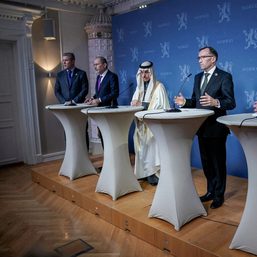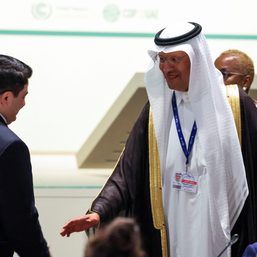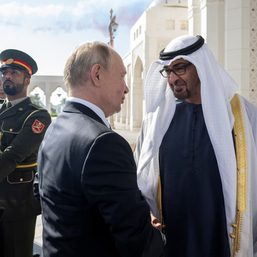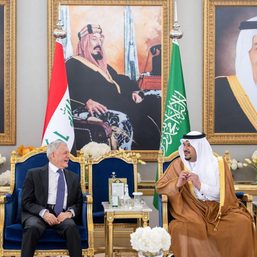SUMMARY
This is AI generated summarization, which may have errors. For context, always refer to the full article.

Saudi Arabia’s Cabinet emphasized on Tuesday, March 22, “the essential role” of the OPEC+ agreement in bringing balance and stability to oil markets, Saudi state news agency SPA reported.
The statement, a little over a week before OPEC+ is scheduled to meet, indicates little chance the grouping will decide to raise oil output at a faster pace.
Several major consuming nations, including the United States, have called on producers to raise their output at a faster rate to help calm crude oil prices, which have soared on the back of Russia’s invasion of Ukraine.
OPEC+, which groups the Organization of the Petroleum Exporting Countries and its allies including Russia, has so far resisted calls to increase supply.
The alliance has been raising output by 400,000 barrels per day (bpd) each month since August to unwind cuts made when the COVID-19 pandemic hit demand.
Saudi Arabia, and to a lesser extent the United Arab Emirates, hold the bulk of OPEC spare capacity. The group is set to meet on March 31.
“I do not think OPEC+ will make a new decision at its next meeting, because most OPEC members see the current price increase as a result of geopolitical factors,” one OPEC+ source said.
“At the same time, it is unlikely that the pressure of Western governments on important OPEC countries to increase their production will be fruitful.”
The Saudi Cabinet on Tuesday also called on the international community to assume responsibility in maintaining energy supplies and to be aware of the danger of Iran supplying Yemen’s Houthis with ballistic missiles and drones.
Houthi attacks against state-owned Aramco facilities over the weekend caused output to temporarily drop at a refinery.
In a sign of growing frustration with Washington’s handling of Yemen and Iran, the kingdom said on Monday, March 21, it would not bear responsibility for any global supply shortage as a result of Houthi attacks on its installations. – Rappler.com
Add a comment
How does this make you feel?





There are no comments yet. Add your comment to start the conversation.